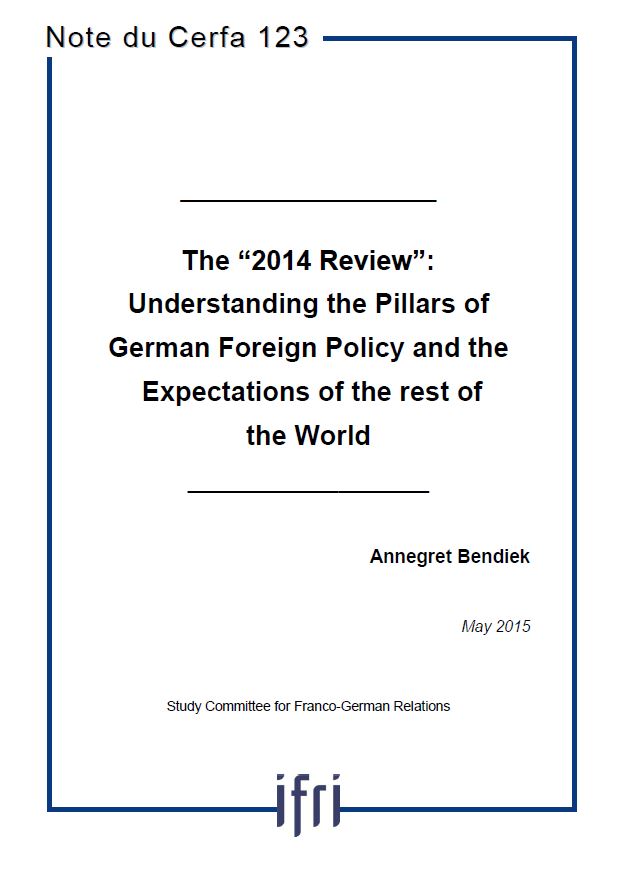The “2014 Review”: Understanding the Pillars of German Foreign Policy and the Expectations of the Rest of the World

German foreign policy is today confronted with a number of fundamental challenges. The country has become larger and has again become strong economically and must no longer content itself with its former role as France’s political junior partner in Europe or the United States’ junior partner in the world. At the same time, Berlin is far from being fully prepared for taking over this new role – deficits are both strategic and conceptual.

Neither the political class nor the media, not to mention the German society, holds concise ideas about German interests in Europe and the world beyond the promotion of peace and justice.
Germany’s political class has not failed to take note of this unsatisfactory situation. As one of the first measures of his new and second term in office, foreign minister Steinmeier announced in 2013 the “self-reflection on the perspectives of German foreign policy” (Steinmeier 2013), which was translated into the “Review 2014 – Außenpolitik Weiter Denken” project.
The debate on Germany’s future foreign and security policy has, however, only just begun. The Review did certainly not end it, but represents merely a snapshot of the longer process during which the country will outgrow its postwar role as France’s and the United States‘junior partner. The Review itself can only in a limited way provide an answer to the question of in which direction this reorientation should happen and how far it should go.
Annegret Bendiek is Senior Associate at the research group "EU/Europe" at the German Institute for International and Security Affairs (Stiftung Wissenschaft und Politik). Between April and October 2014 she was part of the Policy Planning Staff at the German Ministry of Foreign Affairs.
Download the full analysis
This page contains only a summary of our work. If you would like to have access to all the information from our research on the subject, you can download the full version in PDF format.
The “2014 Review”: Understanding the Pillars of German Foreign Policy and the Expectations of the Rest of the World
Related centers and programs
Discover our other research centers and programsFind out more
Discover all our analysesMerz’ European Policy-making: The End of the ‘German Vote’?
Friedrich Merz’s European ambition is to turn Germany, long seen as hesitant into a leading actor within the European Union (EU). To that end, he has pledged to end the “German vote,” a phenomenon that epitomizes the paradox of a country both indispensable and frequently absent from European decision-making.

Securing critical raw material (CRM) value chains – a prerequisite for Europe’s technological resilience
At the heart of economic security, technological resilience is a backbone of the European Union’s (EU) competitiveness. The EU’s energy and digital transitions depend on critical raw materials (CRM).

Reconciling competitiveness and demographic change: a Franco-German imperative
France and Germany are facing parallel demographic shifts that could reshape the future of their economies and their social models. These shifts reflect broader European patterns but are magnified by the central role both nations play in EU governance and competitiveness.
Taking the Pulse: Does France's Political Crisis Weaken Europe's Geopolitical Hand?
While the EU tries to navigate a myriad international challenges, France is experiencing historic political disarray. What impact will instability in Paris have on Europe's geostrategic capacity?









